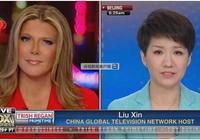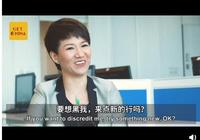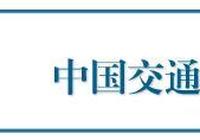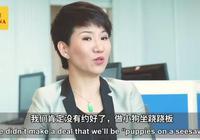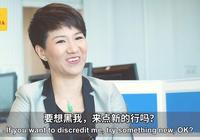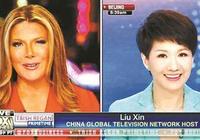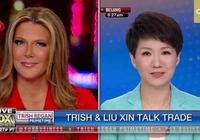北京時間5月30日早上8點25分,中國CGTN女主播劉欣,應約與美國FOX商業頻道女主播翠西·里根,就中美貿易等相關話題進行了一場公開對話。雙方就公平貿易、知識產權、華為、關稅、中國發展中國家地位以及美國所謂“國家資本主義”進行了交流。

以下為看看新聞整理的本次對話精彩內容中英文對照版本。
Trish Regan: Give me your current assessment, where we are on these trade talks? Do you believe a deal is possible?
翠西:你認為現狀如何?中美目前談判的處於什麼狀態?你認為我們能達成協議嗎?
Liu Xin: I don't know. I I don't have any insider information. What I knew was the talks were not very successful last time they were going on in the United States, and now I think both sides are considering what to go next. But I think the Chinese government has made its position very clear that unless the United states government treat the Chinese negotiating team with respect and show the willingness to talk without using outside pressure, there is high possibility that there could be a productive trade deal. Otherwise, I think we might be facing a prolonged period of problems for both sides.
劉欣:我不知道。我並沒有內部消息。但我知道上次在美國的談判不太成功,雙方都在考慮接下去該怎麼辦,但中國政府立場很明確,除非美國政府尊重中國的談判團隊,顯示談判的誠意,而不是用外部壓力,很可能我們能達成一個富有成效的貿易協議。否則,我們雙方都會面對長期的問題。
Trish Regan: But I would stress that trade wars are never good. They're not good for for anyone, so I want to believe that something can get done. And these are certainly challenging times. I realize there's a lot of rhetoric out there.
翠西:我想強調,貿易戰從來都是糟糕的 沒有人能從中獲利,所以我希望能夠做一些事情。現在是困難時期,各方都有不少的聲音。

Liu Xin: Indeed there are people talking about china already becoming so big, why don't you just grow up. Basically, I think you said it in your program as well: China, grow up. Well, I think we want to grow up. We don't want to be you know dwarfed, poor, or undeveloped all the time.
劉欣:確實有人說中國已經變得如此強大了,為什麼中國不能像一個成年人一樣長大點呢?你在節目中也說過,中國(應該)長大。我認為我們想長大,我們並不想一直做一個弱小、貧窮、不發達的國家。
But it depends on how you define developing country. Right? If you look at China's overall size,the overall size of the Chinese economy. Yes, we are very big, the world's number one. But don't forget,we have 1.4 billion people. That is over three times the population of the United States. So if you divide the second largest overall economy in the world, when it comes down to per capita GDP, I think it’s less than one six that of the United States, and even less than some other more developed countries in Europe. So you tell me, where shall we put ourselves?
但這要取決於你怎麼去定義發展中國家。如果你看中國的經濟總量,那麼我們確實已經很強大。但我們有14億人口,超過美國人口的三倍,如果你把它換算成人均GDP,它還不到美國的六分之一,甚至不如歐洲一些比較發達的國家。所以你告訴我,我們應該把自己放在什麼樣的位置?
This is a very complicated issue because per capita, as I said, is very small, but overall it's very big. So we can do a lot of big things and people are looking upon us to do much more around the world. So I think we are doing that.
這是一個非常複雜的問題,我們的人均收入少,但GDP總量是非常大的。所以,我們可以做很多大事,全世界期我們能在世界各地做更多的事情。我們也正在這樣做。
We're contributing to the United Nations. We are the world's biggest contributor to the UN peacekeeping missions. And we're we're giving out donations and human humanitarian aids and all of that because we know we have to grow up. And Trish, thank you for that reminder.
我們正在為聯合國事務做貢獻。我們是世界上對聯合國人類維和任務貢獻最大的國家。我們捐款,並提供人道主義援助,因為我們知道我們必須成長。最後也感謝你提醒我們這一點。

Trish Regan: Let's get to the tariffs. I i've seen some of your commentaries too. And Xin, I appreciate that you think China could lower some of its tariffs. I watch you say that, and i'm totally in agreement with you.
翠西:下面我們來談談關稅問題。我看過你的一些評論,你認為中國可以降低一些項目的關稅。我想說的是,我完全同意你的看法。
In 2016, the average tariff, effective tax that was charged on American goods in China was 9.9 percent, and that was nearly three times what the US was charging. So what do you say about this? What do you think about saying, hey, you know, the heck with these tariffs? Let's get rid of them altogether. Would that work?
2016 年,中國對美國商品徵收的平均關稅實際上是9.9%,幾乎是美國徵收關稅的三倍。你對此有什麼看法?如果我們說,忘了關稅吧,讓我們完全取消它,這樣行嗎?
Liu Xin: I think that will be a wonderful idea. I mean, don't you think for American consumers, products from China would be even cheaper and for consumers in China, products from America would be so much cheaper too. I think that will be a wonderful idea. I think we should work towards that.
劉欣:我覺得這(取消關稅)會是個很好的主意。這樣的話,對於美國消費者來說,中國的產品會變得更便宜,而對中國消費者來說,美國的產品也會更便宜。
But you know you talked about rule-based system, rule-based order. This is the thing. If you want to change the rules, it has to be done in mutual consensus. Basically we talk about tariffs, it is not just between China and the United States.
你談到了以規則為基礎的體系和秩序,這正是關鍵所在。如果你想改變規則,那麼一定要雙方同意。當我們說到關稅的時候,這並不是僅僅事關中美兩國。
I understand if you lower tariff just between China and the United States, the Europeans will come, the Japanese will come the the Venezuelans probably will come and say, “hey, we want the same tariff.” You can't discriminate between countries. So it is a very complicated settlement to reach.
據我理解,如果你降低中美兩國間的關稅,那麼歐洲、日本甚至委內瑞拉都會來說,“嘿,我們也想要這樣的低關稅”。不能對不同的國家區別對待。所以說,要達成這種協議是非常複雜的。

Trish Regan: I think your economic system is very interesting, because you know, you have a capitalist system, right? But it's state-run. So talk to us about that. How do you define it?
翠西:你們的經濟體系很有趣,因為,你們是“國家資本主義”,跟我們談談這個吧。你如何定義它?
Liu Xin: We would like to define it as socialism with Chinese characteristics where market forces are expected to play dominating or the deciding role in the allocation of resources. Basically, we want it to be a market economy, but there are some Chinese characteristics. For instance, some state-owned enterprises which are playing important but increasingly smaller role may be in the economy.
劉欣:我們把它定義為具有中國特色的社會主義,在資源分配中市場起到了主導、決定作用。我們希望成為具有中國特色的市場經濟。比如說,國有企業在經濟中起到了重要作用,但其作用可能正逐漸減小。
And everybody thinks that china's economy is state-owned and everything is state-controlled, everything is state, state, state. But let me tell you, it is not the true picture. If you look at the statistics, for instance, 80% of Chinese employees were employed by private enterprises; 80% of Chinese exports were done by private companies, were produced by private companies. About 65% of technological innovation were achieved or were carried out by private enterprises, some of the largest companies that affect our lives. For instance, some internet companies or some 5G technology companies, they are private companies.
每個人認為中國是國有經濟,方方面面都是國有的,但這不是真實景象。根據數據,中國80%的員工受僱於民營企業,中國80%的出口來自於民營企業的生產,中國大約65%的技術創新由民營企業完成。而且這是一些影響我們生活最大的公司,例如一些互聯網公司或者一些5G技術公司,它們是私營公司。
So we we are a socialist economy with Chinese characteristics, but it's, you know, not everything state-control, state- run. It's not like that. We are actually quite mixed and varied. We make it dynamic and actually very very open as well.
所以,我們是有中國特色的社會主義經濟,但並不是所有的事情都是國家控制的,國家運行不是這樣的。我們實際上是相當混合和多樣化的。我們讓它充滿活力,實際上我們國家也非常非常開放。
Trish Regan: What if we said, “Hey!sure! Huawei, come on in. But here's the deal. You must share all those incredible technological advances that you've been working on. You gotta share it with us. Would that be okay?
翠西:如果我們說:“華為,歡迎進入我們的市場。但必須與我們分享你們所有驚人的科技進步可以嗎?”
Liu Xin: I think it is, if it is through cooperation, if it is through mutual learning, if it is through... if you pay for the use of this IP of this high technology, I think it's absolutely fine. Why not? We all, we all prosper because we learn from each other.I learned english because I had American teachers. I learned english because I had American friends. I still learn how to do journalism because I have American copy-editors or editors. So I think that's fine. As long as it is not illegal. I think everybody should do that. And that's how you get better. Right?
劉欣:我認為,如果是通過合作和互相學習,如果你們付了這些高科技的知識產權費。那可以啊,為何不呢?我們可以互相學習,共同發展。我從美國老師、美國朋友那裡學習英語;我仍然從美國編輯那裡學習新聞。只要合法,我認為這沒錯。我認為每個人都需要這麼做,讓自己變得更好。

